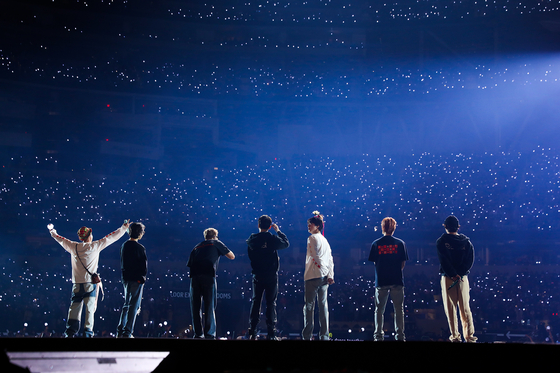Exploring Korea's K-Culture: A Guide for Investors

In the dynamic arena of global business, Korea's K-culture industry stands out as a beacon of innovation and opportunity. Tailored for astute foreign investors and entrepreneurs eyeing expansion into Korea, this in-depth article dives into the vibrant landscape of K-culture. Through thorough analysis, industry insights, exploration of investment benefits, and strategic guidance, it provides a comprehensive understanding while underscoring the importance of credibility and respect in navigating this expansive market.
Exploring the K-Culture Industry Landscape
The K-culture industry has experienced a remarkable evolution, with 2022 revenues surpassing 148 trillion won, marking a 7.7% increase from the previous year, according to the Korea Creative Content Agency. Encompassing gaming, beauty, broadcasting, music, and more, this multifaceted industry not only captivates global audiences but also serves as a robust economic driver for Korea. A deep dive into its interconnected sectors reveals a dynamic ecosystem fostering continuous expansion and innovation, essential knowledge for potential investors.
Insights into Future Industry Prospects
The future of the K-culture industry appears promising, solidifying its position among the top global contenders. With its adaptability to emerging technologies and innovative trends, the industry remains poised for sustained growth. The fusion of tradition with cutting-edge technology offers unique avenues for market expansion, engaging audiences worldwide in immersive experiences and creating diverse investment opportunities.
Advantages of K-Culture Investment
Investing in K-culture extends beyond economic gains, enhancing Korea's global image and facilitating cross-cultural exchanges. With export revenues surpassing imports, the industry offers stability and profitability for foreign investors. Moreover, it aligns with the global trend of cultural appreciation, allowing investors to contribute to a rich cultural narrative while reaping financial rewards.
Understanding these advantages empowers investors to confidently navigate the K-culture landscape, aligning their strategies with its dynamic future.
The Sociocultural Influence of K-Culture
K-culture's profound impact extends beyond entertainment, fostering cultural diversity and inclusivity on a global scale. The widespread popularity of K-dramas, K-pop, and other cultural exports has created a shared cultural language that transcends borders, uniting people from diverse backgrounds. This interconnectedness enriches the global entertainment landscape and promotes a more harmonious society, breaking down cultural barriers and fostering mutual understanding.
Furthermore, K-culture's sociocultural influence extends beyond entertainment, shaping various aspects of daily life such as fashion trends and beauty standards. Korean cultural exports serve as a bridge between East and West, fostering cross-cultural dialogue and appreciation. This cultural exchange promotes diversity and enhances global cultural understanding, contributing to a more interconnected and inclusive world.
In essence, the sociocultural impact of K-culture showcases its ability to shape perceptions, bridge cultural divides, and promote global harmony. As investors explore opportunities in the K-culture industry, recognizing its broader societal contributions is essential for understanding its profound and lasting influence on a global scale.
Strategic Investment Guidance
1. Exploiting the Global Reach of K-Pop and Gaming:
The global triumph of K-pop sensations like BTS and blockbuster games such as "League of Legends" underscores the strategic importance of investing in talent cultivation and international expansion. Through astute guidance of talent and establishment of overseas presence, investors can harness the immense global allure of K-content.
2. Enhancing Revenue via Merchandising:
Monetizing K-content through merchandise presents a lucrative avenue for investors. Examples like BTS have effectively broadened their influence and revenue streams through thoughtfully curated merchandise lines. This merchandising approach not only amplifies financial gains but also enriches the cultural resonance of K-content, catering to the surging global demand for K-pop and gaming-related products.
3. Capitalizing on Cultural Diplomacy and Soft Power:
K-culture serves as a linchpin in South Korea's cultural diplomacy initiatives and soft power expansion. Through the widespread acclaim and acceptance of Korean entertainment and cultural exports globally, Korea has bolstered its international standing and influence. Strategic investment in crafting content resonant with global audiences fosters cultural exchange and bolsters a nation's soft power on the global stage.
In Conclusion
In summary, Korea's K-culture industry presents a myriad of opportunities for investors seeking to tap into its worldwide allure and economic viability. Tailored for foreign investors and entrepreneurs eyeing Korea's market, this article offers a comprehensive examination of K-culture, spotlighting its revenue growth and diverse sectors. Recognizing the broader societal impact of K-culture beyond its economic facets is pivotal for informed decision-making and strategic maneuvers.
Pearson & Partners, a consultancy specializing in facilitating market entry into Korea, provides expert guidance for investors aiming to capitalize on the prospects within the K-culture sector. With proficiency in incorporation and tax accounting services, Pearson & Partners ensures a seamless transition into the Korean market. For personalized support in navigating the intricacies of K-culture investment and optimizing returns, reach out to us today.
.png?width=1656&height=121&name=rsz_%EB%A1%9C%EA%B3%A0%ED%88%AC%EB%AA%85%20(8).png)

